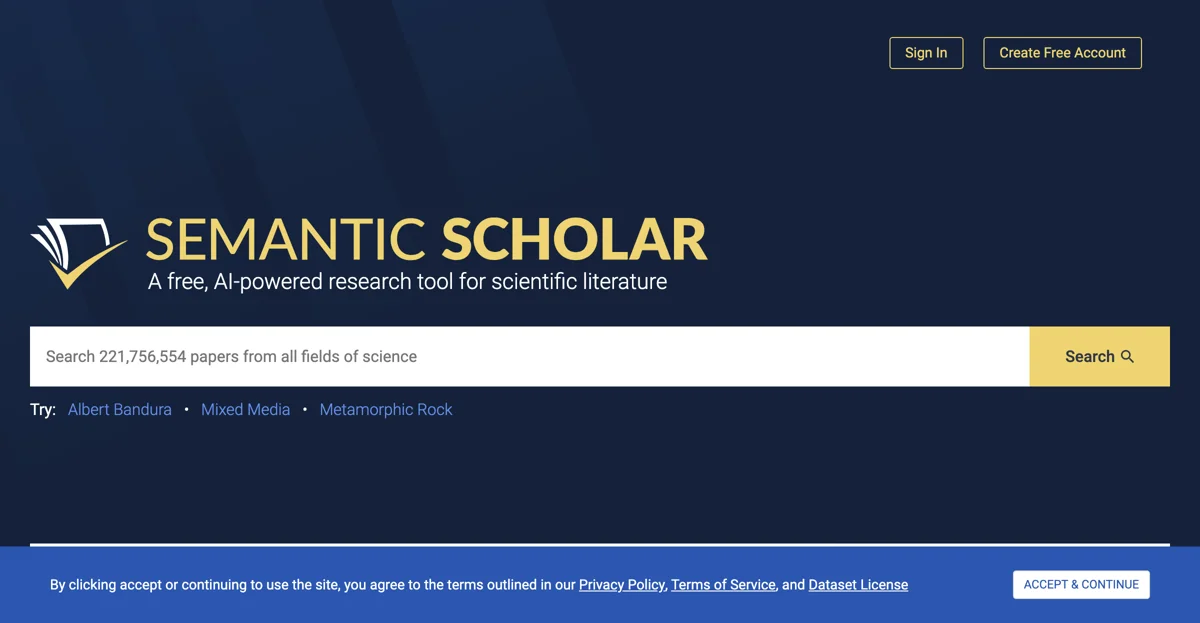Semantic Scholar stands out as a cutting-edge, AI-powered research tool designed to revolutionize the way scientific literature is accessed and analyzed. With its advanced algorithms, it offers a comprehensive search experience across a vast database of 221,756,564 papers from all fields of science. This tool is not just about providing access to scientific papers; it's about enhancing the research process through intelligent features that make scientific reading more accessible and richly contextual.
One of the standout features of Semantic Scholar is the Semantic Reader, currently in beta. This augmented reader aims to transform scientific reading by integrating contextual information directly into the reading experience. This innovation has the potential to make complex scientific literature more understandable and engaging for a broader audience.
For developers, Semantic Scholar offers an improved API that includes paper search capabilities, better documentation, and increased stability. This opens up opportunities for hundreds of developers to build scholarly apps that can leverage the power of Semantic Scholar's database and AI capabilities.
Moreover, Semantic Scholar is committed to creating efficiency in AI research, aiming to decrease its carbon footprint and increase inclusivity. The initiative led by Roy Schwartz, Jesse Dodge, N. A. Smith, and Oren Etzioni in 2020 highlights the importance of making deep learning studies accessible to all, not just those with the deepest pockets.
Semantic Scholar is proudly built by the Allen Institute for AI (Ai2), a leader in AI research and development. The platform is a testament to Ai2's commitment to advancing AI technology for the betterment of scientific research and accessibility.
In summary, Semantic Scholar is more than just a research tool; it's a gateway to a more efficient, inclusive, and contextual understanding of scientific literature. Its AI-powered features, commitment to sustainability, and developer-friendly API make it an invaluable resource for researchers, developers, and anyone interested in the latest scientific discoveries.

